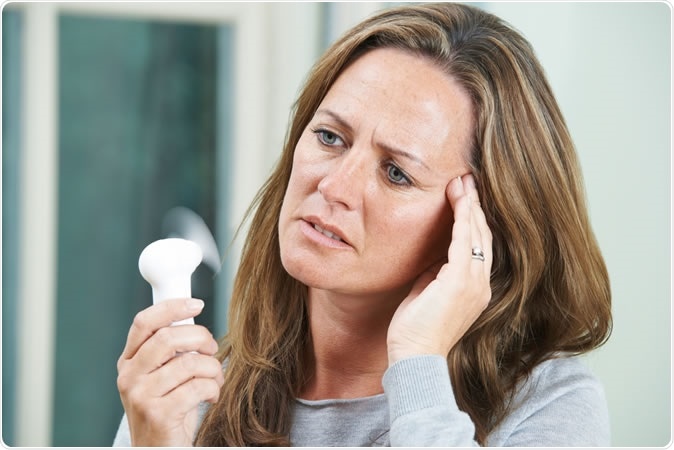Menopause marks the end of a woman’s reproductive years. Along with it, comes various effects, including irregular to the complete cessation of periods, insomnia, mood swings, irritability, hot flushes, and decreased sexual drive.
Now, women older than 60 may experience a decrease in sexual drive and libido, and it’s not just because of menopause, a new study suggests.
A team of researchers at the University of Pittsburgh School of Medicine revealed that women in their 60s report many reasons behind a lack of libido. Published in the journal Menopause, the qualitative study explored on the possible reasons for their lack of desire for sex. They found that aside from going through menopause, there are a multitude of other factors affecting libido, including postmenopausal vaginal symptoms, fatigue or body pain, body image, life stressors, and erectile dysfunction in their partners.

Image Credit: SpeedKingz / Shutterstock
"If a woman is having sexual problems, what's going on with her partner may be contributing. Sex doesn't occur in a vacuum,” Dr. Holly Thomas, assistant professor of medicine at Pittsburgh and lead author of the study, said.
Low libido and other factors
In the study, about 40 percent of women who are more than 60 years old experience low libido or desire to have sex, and about 10 percent report that they get bothered by it. The team of researchers want to know the factors that affect libido in men.
To land to their findings, the team performed three 12-woman focus groups. Through interviews, they gathered data from 15 other women privately, depending on the preferred setting of the participant.
One of the most surprising results is that many women said that sexual dysfunction or impotence in men is a key driver and contributor to their reduced sexual desire. In some women, they find temporary solutions to the problem, but others claimed that their partners were defensive.
"As women, we're encouraged to be accommodating, so we learn to tamp down our own needs and desires, and prioritize those of others,” Thomas added.
Further, the researchers found that in some women, even if they are already retired and all their kids have lives of their own, they still feel stressed. The stress makes them worry less about sex and think of other things. Hence, they don’t view sex as a priority.
The researchers emphasized the need for more research and studies on the lack of libido in menopausal women since most body of knowledge focus on hormonal changes. Hearing what these women had to say develops new insights that may not be acquired through quantitative studies and large surveys.
Menopause and its health effects
Menopause is the period when the menstrual periods stop permanently, which means a women can’t get pregnant anymore. After menopause, the body produces less estrogen and progesterone, the female hormones. When there is a marked decrease in estrogen levels, it can affect health and cause various symptoms.
The common symptoms of menopause include a change in periods, hot flashes, dry vagina, loss of bladder control, trouble sleeping, less interest in sex or reduced sexual desire, mood changes, and body changes
Most women experience a change in their periods, with some periods closer together or having spotting. Some women may have periods that last for more than a week and heavy menstrual flow. Another common symptom is hot flashes, which can last a few years after menopause. This is due to reduced estrogen levels.
The vagina can also become drier, and some women may experience incontinence. Reduced vaginal lubrication can make sexual intercourse uncomfortable. They are also prone to having health problems, including vaginal and bladder infections. Women at this age may also lose bladder control, making them feel the sudden urge to urinate, or their urine may leak when laughing, exercising and sneezing.